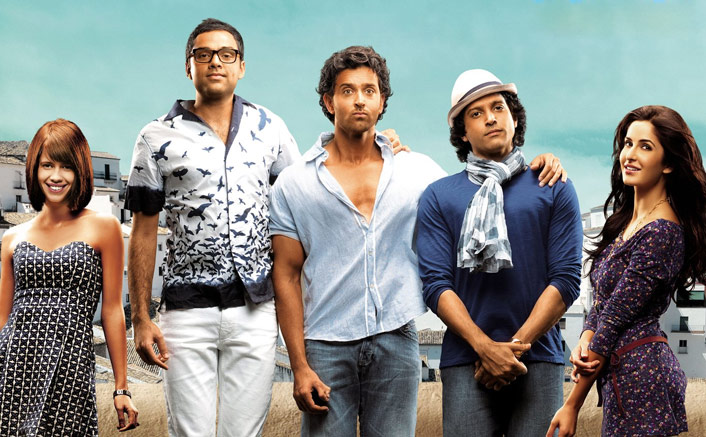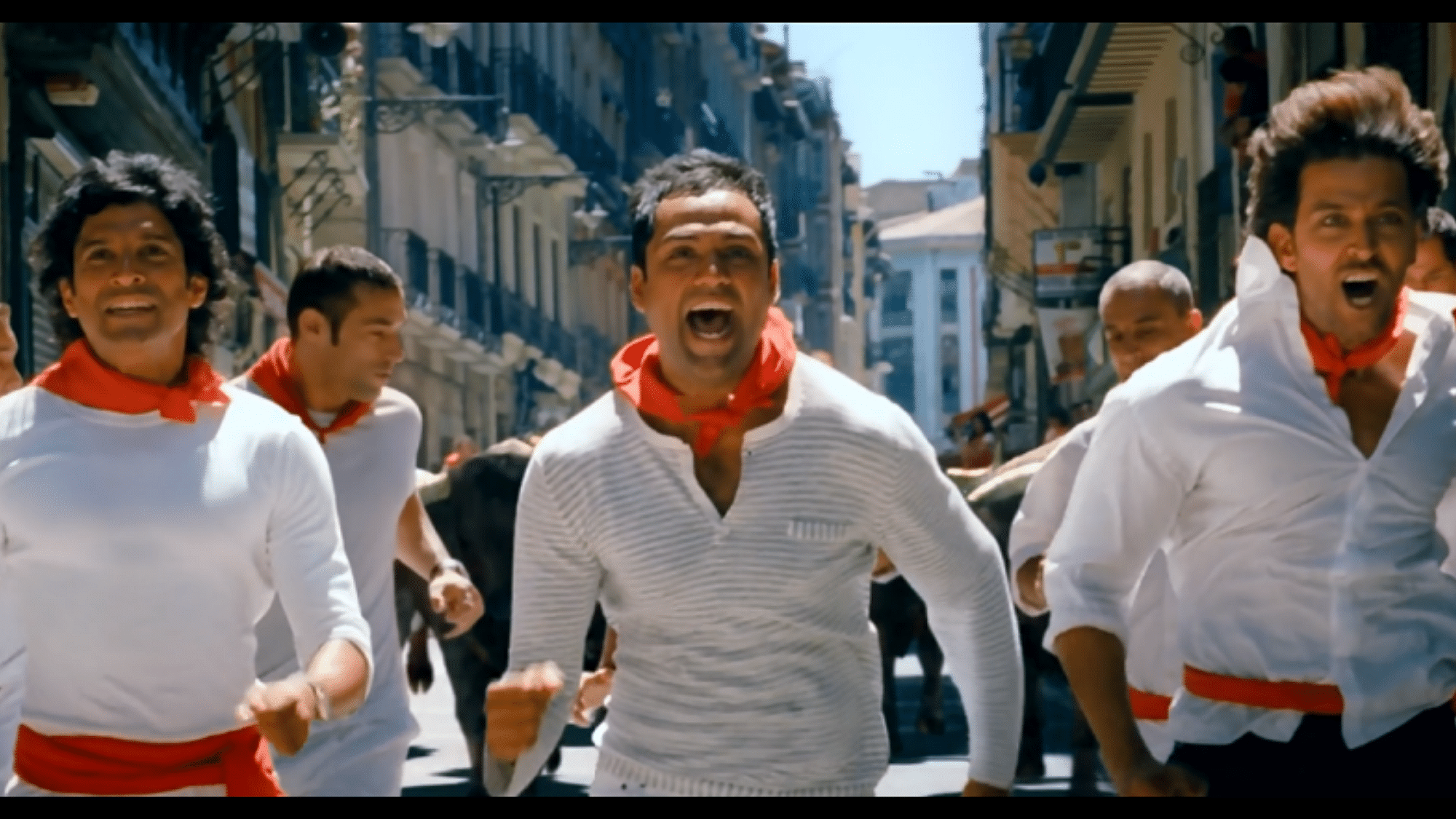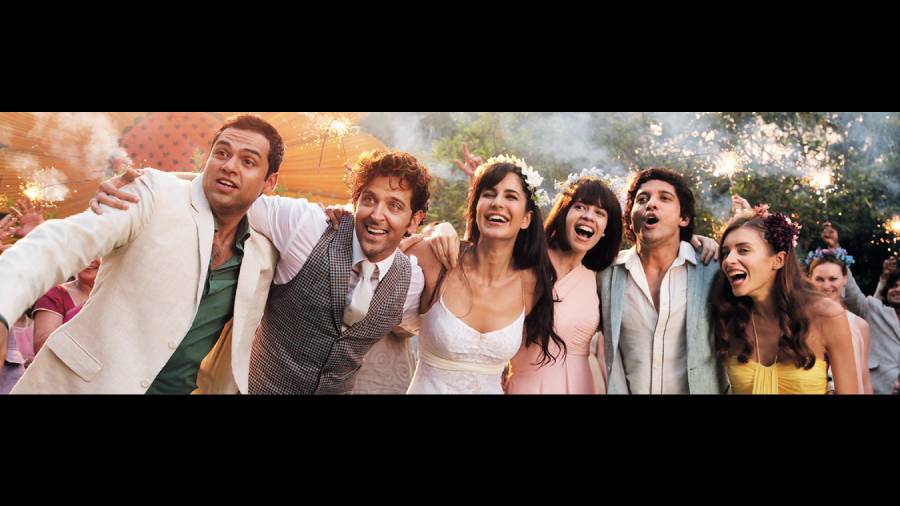Thinking of ZNMD after Ten years of its release, besides anything about the film, what strikes me is that I heard someone describe the experience of watching it as ‘two and a half hours of orgasm’.
Well, no wonder you hear people say so. Right from its plot—three best friends gathering to go on for a road trip in Spain, with surprising adventures each of them planned for all three on their way—the fun-filled bromance equation between each of them, the life-changing persons they meet on their way, to the picturesque Spain landscape and colors, all consistently packed, naturally make the film an ‘I don’t want it to end’ experience for us.
But, it should be irresponsible to attribute these reasons to the success of the film. It’s the writing that stands out as more radical than anything.

As the film’s writers Zoya Akthar and Reema Kagti put, before anything, they invested in their characters—the characters that are original and distinct from each other in their priorities, aspirations, fears, etc.—and conflicts they have within and between them.
Rest all, the ones mentioned earlier, are built to create a world and a journey, and set a narrative, in such a way that the characters come out refined to live life the better way at the end of their tour, or in our case, the film.
Besides, the screenplay is a great strength to the film, neither dragging nor informative, but flows purposefully to unfold events that trigger characters to open up about their past and present conflicts, which change the mood of the journey, giving us a little deeper perspective on their life.
Apart from this trio, the writers are very minimal in employing other characters, too: Kabir’s fiancé Natasha, Arjun’s girlfriend Laila, Imran’s biological father Salman, and a few more.
All these serve a very strong purpose in each one of the trio’s life, in causing them to introspect, influencing their life’s direction, liberating them from their past, and so on.
Earlier I said writing stands radical to this film’s success because wherever the story flows, whoever it introduces on its way, whatever the past events it brings to the surface, finally the whole narrative boils down to the very idea of doing something meaningful to one of the three characters.

Yet, keeping aside all these film-making aspects, the same fact, i.e. having everything to do with the fear and transformation of these three guys, is what makes the film feel so filmy, always having a line between us and the world we watch on screen.
Plus, what even more alienates the audience from the narrative is, in ZNMD’s universe, everything feels elite.
Of course, the story is about a luxurious road trip through Spain and money is never a problem for them.
Still, there need not be monetary challenges but why not address some basic money- and material-sensitive concerns among relationships.
A story that deals with people management, saying No to others, having freedom, etc. needs to encompass such elements.
And, the film speaks of humans breaking out of personal fear and transforming, which also feels less credible on seeing how flexible and less-complex the characters are to easily and dramatically embrace some heavy truths and paths without having to internally go through a psychological war for a considerable phase of their life.
This limits the philosophy the film tries to convey, in just a watchable zone, not letting it transcend into the doable or practical boundary of the audience.

However, coming to the idea of living the moment, as the film preaches (in a good way), it succeeded in giving us a very positive experience and hope, which for a lot of us can inspire a real sense of confidence and liberation in our lives.
Overall, the film just flows; easily, naturally, and consistently, the film flows in a way that you never want it to end. And after 10 years of the watch, it’s nothing less than a genuine nostalgia for all of us. Zindagi Na Milegi Dobara: Nostalgia Impersonalized.
Also Read: Why The Opposition Needs to Re-evaluate Its Parliamentary Strategy On The Pegasus Snoopgate















